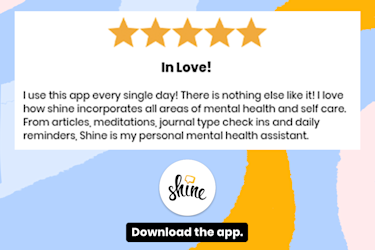How to Change Your Mindset About Mornings
February 19, 2019
Are you a morning person or a night owl?
I used to claim I was a “night owl” who thrived from the hours of 12 p.m. to 12 a.m. I shunned the mornings—especially while in school—because I often felt rushed, groggy, and not at my best. “I’m just not a morning person,” I’d tell my friends as I rolled into that 8 a.m. class, still half asleep.
But recently, I had a realization: I wasn’t giving myself a chance to start the day strong.
I realized that my mornings were based on things that were completely in my control—like preparedness for the next day or taking steps to sleep better at night. And I could do mornings my way. Becoming a “morning person” didn’t have to mean waking up at the crack of dawn, like all those articles about top CEOs preach.
So I flipped my morning mindset. Now: Mornings are gasp one of my favorite parts of my day.
It took a bit of work, but if you’re also not a morning person, here’s how you can get started:
Know Your Clocks
Research shows that success isn’t impacted by whether or not you wake up at the crack of dawn. In fact, studies show that we thrive best when we’re allowed to wake up whenever our bodies are ready.
Each of us has two internal clocks: a biological clock and a social clock. Our biological clock helps us determine when to wake up or go to sleep, and it regulates things like our stress levels or body temperature. Our social clock, on the other hand, is more related to the schedule of our day. It starts when we begin our day, and accounts for when we take lunch breaks, answer emails, or set appointments.
And all our clocks run differently—and they can all set us up for success.
“We all have the same chance at success no matter what times are on our clocks," explains Your Inner Babe founder Jacq Gould in the Shine app's 7 Days to Better Mornings challenge. "It's about the quality of rest and the amount of rest that helps you feel your best."
These internal clocks are different for everyone—and finding what works for you means shaking off the pressure of what it means to be a morning person, a bit of time, and a whole lot of self-compassion.
There have been times I definitely ignored my clocks by waking too early or sleeping in too late. When I ignored my biological clock for the sake of my work schedule or appointments, I always felt like my head was in a fog.
Understanding when my social clock ends, or when I’m ready to call it a night to get some quality time to unwind, is just one of the ways I try to shake off any worries from the day and reset.
Quality Sleep > Quantity
It might seem weird to bring up sleep when we’re talking about mornings, but sleep impacts all areas of our days—especially the first few hours when we’re up.
Whenever I go to bed, I do a bit of mental math to calculate the number of hours of sleep I’ll get in a night. But research shows it’s actually the quality of sleep that matters more than how long you’re snoozing for.
According to the National Foundation for Sleep, some ways you can track the quality of your sleep is if you’re falling asleep in 30 minutes or less or waking up once a night, maximum. When we make moves towards making sure we get quality sleep, it becomes easier to get moving and feel good in the morning.
Plan Ahead
Just like how we can optimize our bedtime routines, we can plan ahead for a quality morning.
“By planning out your day in advance—choosing clothes, packing meals or even checking the weather—you're helping balance your mood and your stress levels, and leaving more room for doing things out of enjoyment like savoring that cup of coffee or taking a walk,” Gould says in the 7 Days to Better Mornings challenge.
Before I go to bed, I try to do small, easy things to make future-me feel a little less stressed. For me, that means making sure my keys and wallet are both in places that I can see them, or gathering my gym clothes and putting everything I need in a bag by the door.
When I do even just a small thing to prepare for the day, my mornings always go much smoother and I rarely find myself scrambling to find or remember things. It allows me to breathe a little easier, and feel a bit more grounded and ready to take on the day.
Just like how we can optimize our bedtime routines, we can plan ahead for a quality morning.
Make It Fun
Finally, fiding something to look forward to in the mornings has helped me go to bed with joy rather than stress.
When I have a run scheduled, or plan for a bit of time to try a quick new breakfast recipe, it's easier for me to ignore the snooze button and wake up motivated. As a result: My productivity for the rest of the day soars—research shows that a positive mood has an impact on performance.
Shifting your mindset about mornings isn’t something that happens overnight. Start with small moves to make those first few hours of your day easier, so you can better handle anything the day might throw at you.
--
Read next: 4 Ways to Slow Down Your Hectic Mornings

Shine is supported by members like you. When you buy through links on our site, we may earn an affiliate commission. See our affiliate disclosure for more info.


